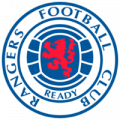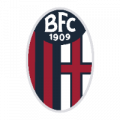Alan Pardew’s return to Crystal Palace in January 2015 was met with mild scepticism. The 55-year-old left a Newcastle United side in a healthy league position, despite vast off-field issues, for a club who were sat among the bottom three. It was a risk of an extreme magnitude.
Pardew’s reputation with the Palace fans drew him back to the club. His winning goal in the 1990 F.A. Cup semi-final against Liverpool earned him cult-hero status at Palace. Selhurst Park was, by his own admission, his ‘home’. It was a place where he felt a world away from the toxic atmosphere and the loneliness he experienced while standing on the touchline at St. James’ Park.
Just under two years on, Pardew left Palace on Thursday with the majority of fans calling for his head. Selhurst Park was no longer a ground with a vibrant atmosphere and chants of Pardew’s name had been left in the distant past. It was a reputation that Pardew admitted he risked losing, and a reputation that was on its last legs in his final months at the club.
Fairytale start
The first twelve months of Pardew’s reign could not have been much better. Fears of relegation were soon diminished as the Eagles soared up the table to a tenth-placed finish. It was the highest the club had finished in the Premier League since its introduction in 1992 and they also became the first side to be in the relegation zone at Christmas and finish the season in the top half. Much – if not most – of the success was down to Pardew.
Pardew instilled confidence that was non-existent during Neil Warnock's brief tenure and introduced an attacking style that had fans on the edge of their seats. Squeezing the best form out of Glenn Murray was also a major factor in the record-breaking five months of the remainder of the 2014/15 season.
The Summer transfer window offered a chance for Pardew to further Palace’s credentials. Yohan Cabaye and Connor Wickham were the two marquee signings and were key players for the Eagles in the first part of the 2015/16 season. The Frenchman was influential in victories against West Bromwich Albion, Watford and Chelsea that were pivotal in Palace reaching as high as fifth by December.
Extreme high soon turns into abysmal plight
There was a sense that Pardew could do no wrong. A memorable 5-1 win against his former club and, by this time, bitter rivals Newcastle was the cherry on the cake. Soon after, a 2-1 defeat of Stoke City landed the Eagles in sixth at Christmas, outside the Champions League places on goal difference. Dreams of a European tour were far from delusional. Palace had consistently stayed within the Europa League qualification places since August and were more than a match for the top sides.
However, the victory against the Potters was, amazingly, to be the last league success until the following April. Palace capitulated. Injuries and a general, inexplicable loss of form saw them tumble towards the bottom of the table. Players lost confidence and individuals errors cost valuable points. Pardew failed to rekindle a winning formula.
Excessive spending in the summer meant there was very little to spend in January. The squad needed improvement due to a lack of depth, yet the board nor Pardew could not do anything about it. The signing of Emmanuel Adebayor on a free transfer reeked of desperation. The Togolese striker needed a month to even be anywhere near match fit and ended his six-month Palace career on the fringes of the first team having managed just a solitary goal.
An astonishing 14 games passed between the victory against Stoke and April’s win over Norwich City. It felt like much more. The victory against Mark Hughes' Stoke side in December put Palace onto 29 points; they ended the season with just thirteen more.
A win seemed out of sight. Pardew’s tactics and substitutions were largely to blame; the proactive changes being at the start of his tenure were turning into reactionary changes. Palace often needed to go a goal down to liven up.
Pardew had gone from being tipped to become the next England manager to having his club job on its last legs. Only a stunning, albeit shock, run to the F.A. Cup final kept him in his role, although the defeat to Manchester United failed to paper over any cracks.
Summer transfer window signalled a change of times
Palace needed rejuvenating and Pardew was given club-record funds to spend. Christian Benteke, Andros Townsend and James Tomkins walked through the door for a combined fee close to £50 million, while Steve Mandanda was picked up, rather credibly, on a free transfer. Loic Remy was signed on loan from Chelsea with an option to buy clause inserted into his contract, although the striker suffered an injury just two days into his Palace career - the first in a long line of absentees that Pardew had to deal with this season.
While players came in, Dwight Gayle and Mile Jedinak, two fan favourites, departed. The decision to sell the Australian, who also lost the club captaincy weeks before, was heavily scrutinised. Palace lacked leaders before they sold Jedinak and forcing him to leave only worsened this issue. Although not capable of competing every week at top-flight level, the now-Aston Villa midfielder still had a part to play. Pardew failed to recognise this issue, leaving fans seriously doubting his position as manager.
Pardew responded, as any manager would, by trying to get the fans back onside; promising a better style of football that he even, quite laughably, likened to prime Barcelona. Even describing it as ‘tiki-taka’. It just wasn’t going to go well. Palace lacked the players to utilise Pardew's desired style and his attempts to change the club’s identity, which throughout history has been playing counter-attacking football, was too soon.
Palace’s league campaign started just as it had ended, with a defeat. Made all the more worse by the 1-0 reverse to West Brom being orchestrated by Tony Pulis, the former manager whose good work was being undone right next to him by his successor second-in-line.
A further defeat to Tottenham Hotspur followed but then three wins in a row brainwashed many into thinking Pardew had managed to turn the predicament around. Palace should have also beaten Everton but for a couple of poor refereeing decisions and had to settle for a point.
Form was temporary, mistakes were permanent
The four-game unbeaten run was as good as it got. The next ten games that followed would include just a single victory. A defining moment for Pardew was a 5-4 defeat to Swansea City. Palace took the lead through Wilfried Zaha – who was a shining light through the dark times – before going 3-1 down. A battling performance saw the Eagles take a 4-3 lead in second half added-time, only to lose the game.
The failure to hold onto points was never-ending. Points were dropped against Burnley and Manchester City thanks to soft late goals, often a set-piece. The game against the Clarets was drawing to a close with the score at 2-2, only for Pardew to send nine outfield players forward at a free-kick which was easily cleared and ten seconds later, the ball was in the back of Mandanda’s net. The failure to fix mistakes was becoming criminal.
Following the defeat to the Swans, Pardew was given two games to save his job. Fortunately, he won the next match – a comprehensive, albeit shock, 3-0 win against Southampton. This should have boosted confidence. It was a performance akin to that of Pardew’s first six months.
However, an even bigger game against Hull City followed and Palace, yet again, looked ridden with nerves. Once more, Zaha was required to bail his side out, claiming a 3-3 draw against their relegation rivals.
Man United then visited Selhurst in a game, like the Swansea fixture, that defined Pardew’s tenure. James McArthur, another player – like Zaha – whose performances have been a highlight, scored to equalise in the second half. Palace would surely see the game out but Pardew withdrew McArthur and replaced him with Fraizer Campbell instead, attempting to go for the win. Zlatan Ibrahimovic scored the winner less than a minute later.
Pardew’s legacy remains intact but his managerial tenure will overshadow his playing success
Pardew’s ‘try to win at the risk of a defeat’ attitude is commendable. Except it’s not necessary in times of need. Replacing the club’s best defensive midfielder with a striker when a draw against Man United is in the bag is unforgivable, particularly when points had been hard to come by.
Removing Pardew from his role on Thursday was ultimately the correct decision. Palace’s form is the worst out of any of the ninety-two clubs in the English Football League and one could argue the case that he didn’t deserve to be in charge at the start of the season, particularly given the end to the last campaign.
While his playing days should correctly be his legacy, it will be difficult to forget about his stint in the Selhurst Park dugout. He took over a football team that needed rebuilding and leaves a side hardly a world away. Co-chairman Steve Parish spoke glowingly about the 55-year-old in a statement released yesterday, claiming Pardew had ‘improved several key areas’ of the football club. Except the main component of the club, results, was his biggest failure.
Pardew admitted he risked losing his reputation at Palace upon his arrival, and while it is not completely lost, he just won’t be remembered in the same way.










































